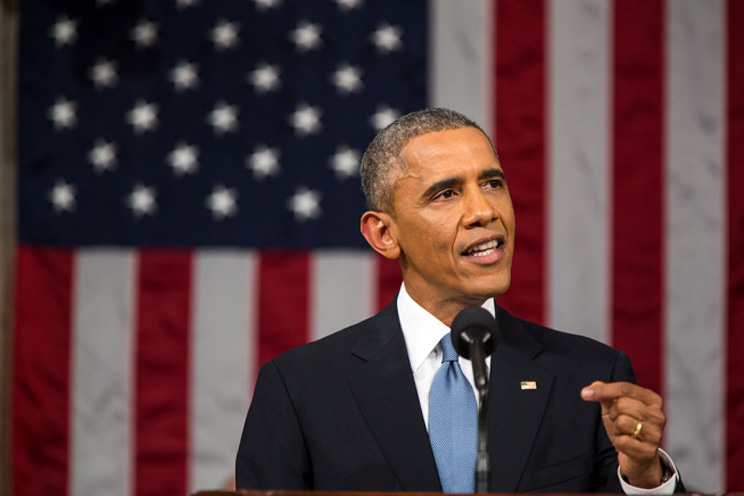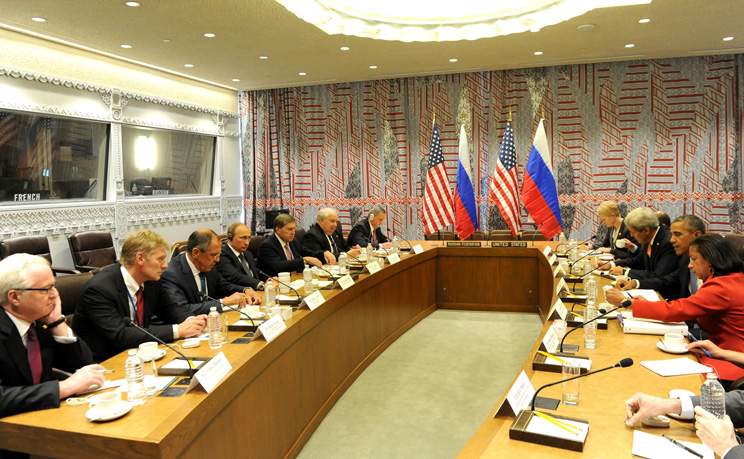This was a State of the Union Address with a difference; it didn’t follow the usual format, which is to dwell on the political issues of the moment. There was no laundry list to ask for Congress’ cooperation. This was President Obama’s swan song to the people of the United States rather than an address to Congress on the state of the nation. It was an attempted visionary speech where he sought to communicate optimism and hope in America’s future, while attempting to dispel any fear of America’s decline or an immediate threat by Isil. But there was a problem: his lack of warmth, and emotional involvement.
With his Ciceronian style of oratory, the President spoke to his greater audience via the television cameras that would send his message across the entire country and, indeed, across the rest of the world. Congress itself seemed reduced to a near irrelevancy and appeared as merely the formal setting for his speech. It was as if he had by-passed it, and this was shown by how little his speech affected its members.

Unlike other such addresses, Mr. Obama looked beyond his last year in office to the future of the United States where he strenuously insisted that there was no direct threat to the American way of life. “As we focus on destroying Isil”, he told his audience, “over-the-top claims that this is World War lll just play into their (Isil) hands”. He continued, “all the talk about America’s decline is political hot air”.
His attempt was to sell a vision of the future, “The future we want – opportunity and security for our families: a rising standard of living and a sustainable, peaceful planet for our kids – all that is within reach, but will only happen if we work together”. But this is where his principal failure in office as a politician lay.
President Obama admitted he was unable to bridge the gap between the Democrats and the Republicans in Congress. He admitted that it would take the gifts of a Roosevelt or a Lincoln to achieve such a task, but that he would keep on trying. He offered no common ground in his speech to begin the process of reconciliation: it was his way or nothing.As an observer, one got the feeling that Obama was simply intent on trying to connect up the optimism and hopefulness of his early days in office with the future. He seemed to want this optimism to be his legacy. But, on the other hand, he appeared aloof from the realities he was describing. Instead of leaving an optimistic electorate, one felt he was leaving the country more cynical than he had found it. He had raised hopes way back in 2004, when he expressed to the Democratic Convention the hope that he would unite the nation, but in reality he now admitted it was a promise that he was unable to deliver on: the Republicans and Democrats appear to be as divided as during the Clinton presidency.
The speech was built round four basic questions. The first question, for example, was how do we guarantee all Americans a fair shot at opportunity? Here he attempted to offer something concrete and positive by suggesting that two years of community college should be free for all. However, he didn’t go any further, and the idea was left dangling. Likewise with the other three questions as to what policies could be enacted to make sure that technology works favourably for people, how we can keep the world safe without becoming the world’s policeman, and, finally, how the nation’s political life can elicit what is best in us, he was not over convincing.

But it was the third question, on foreign affairs, usually a strong point for most Presidents, where he most lacked clarity . There were few clear answers and little vision. Yes, he told us, America’s influence and its military force were limited. Indeed, the Middle East would take a generation to sort out. He gave his audience a warning of being caught in a quagmire, citing Vietnam and Iraq as previous examples. He then attacked Russian involvement in Syria and the Ukraine, and suggested that both countries were slipping from Russian influence. This was a little confusing for many.
My feeling is that this State of the Nation Address will not be long remembered , and certainly will not be remembered as a visionary speech. President Obama, in a rather aloof way, had the good intention of mapping out the future while communicating the hope and optimism of his earlier days in office. However, it didn’t work, as it was evident to all that the bitter divide between the Republicans and Democrats continues today, and America’s present involvement in the Middle East, and with terrorism in general, is set to continue for at least another decade or more.
Finally, I suspect, from watching the speech on television, that Barack Obama is a wonderful campaigner and public speaker but not a very good politician, as he has made no effort in his speech to bridge the divide between the Democrats and Republicans.


Interesting observations. One particularly annoying aspect of Obama’s speech-making is his continual use of strawmen (“some say” ; “while others say” and then whatever Obama says is posited as being correct). Combining that with the robotic self-confidence and his utter inability to concede any ground to his opponents and, as you observe, his unwillingness to build bridges then you can see how people have tired of his previously appealing rhetoric. I don’t think history will judge Obama kindly even though I’m sure he feels he’s headed for Mount Rushmore.
“But there was a problem: his lack of warmth, and emotional involvement.” – Well said.